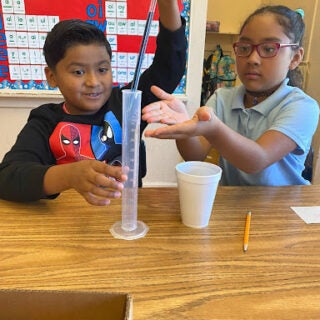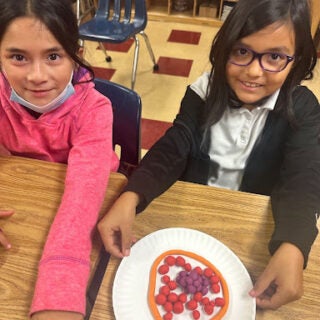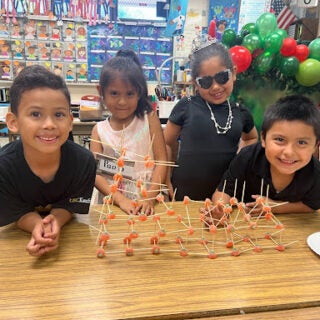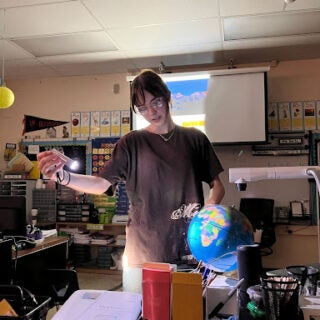Fueling the Future: Expansion of a Thriving STEM Program

The JEP STEM Education Programs have come far from their beginning in 2006 when the Young Scientists Program (YSP) was offered at just two grade levels in two of JEP’s partner schools. In the 17 years since, the original YSP has expanded to four grade-levels across seven schools, and two separate programs- the after-school STEM Careers program, WonderKids, and the Medical STEM Program (MSP)-have been added. We are pleased to announce that this Fall 2023 semester has seen additional growth for both MSP and YSP.
The MSP is a partnership between the Joint Educational Project and the USC Norris Comprehensive Cancer Center (NCCC) and their Cancer STEM Education Partnership Program (C-SEPP). At MSP’s inception in 2018, NCCC funded 5 classrooms which allowed us to reach 150 second grade students per year and continued to support the program at this level over the last four years. This semester, with additional funding from the NCCC and the USC Good Neighbors Campaign (GNC), MSP has been able to make an exciting change. In response to teacher feedback and in order to better align MSP lessons with elementary Next Generation Science Standards, MSP has become a third grade serving program. As we made this change, we were also able to expand our reach, from 5 classes to 19, and thereby increased its impact to 570 students per year.The NCCC has graciously agreed to sustain MSP at this level for the next five years, paving the way for a bright future for this already successful program.

When asked to comment on NCCC’s commitment to funding MSP, Dr. Caryn Lerman, Director of the NCCC had this to say “There is a shortage of underrepresented minorities in cancer field related careers. Starting to teach the science behind cancer at the youngest possible age can potentially reverse that, which is why Norris enthusiastically supports C-SEPP in elementary schools serving underrepresented minority children”.
This first semester of the new incarnation of MSP is already off to a promising start. After our oncology unit, when students were asked “When cancer cells don’t stop growing, they form a big pile of cells called a” almost 90% answered correctly with the tumor answer. Furthermore, 70% of students were able to define what oncology was in a sentence.
As an additional benefit of the NCCC and GNC covering all of the third grade classrooms via MSP, the YSP was able to expand our second grade programming to all seven of our partner schools for the first time as well.

Mr. Nakama, a second grade teacher at Vermont Ave Elementary, had this to say about the new curriculum in his classroom:
“I really love our YSP program because our USC STEM science leader, Ms. Laney is covering the Next Generation Earth second grade science standards efficiently with many hands-on projects that involve engineering and student collaboration. All of the students have been extremely excited to do these fun-filled activities that enhance the learning and understanding of science concepts”
Our second grade expansion is not the only way that YSP is growing this academic year. For the first time, YSP is piloting a hands-on, NGSS-aligned curriculum in first grade classrooms. Veteran YSP TA, Carly Hamel, is implementing our first grade curriculum in two classrooms, specifically: Ms. Horta at 32nd St School and Ms. Carrillo at Foshay Learning Center. Ms. Carly said “

“We are currently beta-testing our first grade curriculum in YSP! This is our first year that we have been testing this curriculum, so I have been tweaking some of our lessons to fit our student’s educational needs. Our most successful lesson was our pulley lesson—I had students create their own pulleys with string, a water bottle, and a PVC pipe, and then have them complete different pulley “challenges.” The overall favorite challenge was acting as a “crane” and figuring out how to move the bottle across the classroom to an elevated surface and then back down—but without touching the plastic bottle at all!